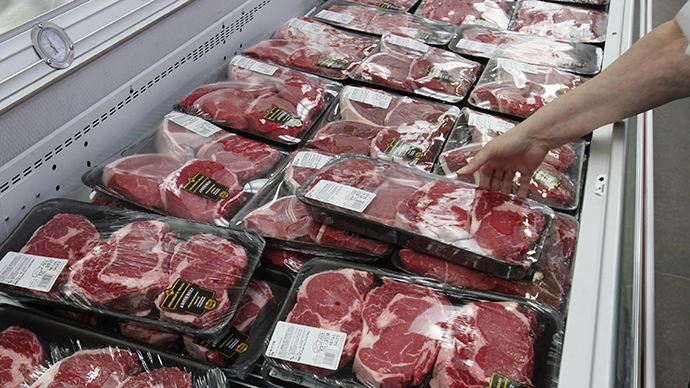Canada threatens US with retaliation over meat-labeling mandate

A newly unveiled agriculture bill in the United States is drawing heavy fire from Canada, which is threatening retaliatory action if the law’s country-of-origin labeling mandate earns enough support to go into effect.
On Monday, congressional lawmakers announced they had secured an agreement on a five-year farm bill that would leave in place rules requiring meat sold in US markets to detail its country of origin.
According to the Canadian press, this requirement — which forces US companies to sort and label foreign meat exports differently than domestic products — costs Canada’s economy about $1 billion a year. Some companies, such as Tyson, have decided simply to halt meat purchases from Canada due to the labeling mandate.
Since 2008, Canadian meat exports to the United States have been cut in half. Canada’s Federal Agriculture Minister Gerry Ritz has already called Tyson’s decision “devastating,” adding to CBC News that it would be “catastrophic” if other companies took similar action.
“By refusing to fix country-of-origin labelling, the US is effectively legislating its own citizens out of work, and harming Canadian and American livestock producers alike by disrupting the highly-integrated North American meat industry supply chain,” reads a joint statement issued Monday evening by Ritz and International Trade Minister Ed Fast.
“Our position remains that the changes made by the United States administration to mandatory COOL [country-of-origin labeling] (will) increase discrimination against North American producers and processors, hurting hard-working Canadians and Americans alike,” they said.
“Our government continues to stand with our industry, and we remain steadfast in taking whatever steps may be necessary, including retaliation, to achieve a fair resolution.”
The Canadian government is warning that if the new farm bill passes and becomes law, it will respond by establishing tariffs on US exports – meat, cereal, fruit, desserts and more. In addition to potential new tariffs imposed by Mexico, the US could lose $2 billion due to retaliatory actions by its closest neighbors.
Lobbying efforts to oppose passage of the farm bill are also planned, as US lawmakers expect to begin considering the proposal as soon as Wednesday. Multiple US groups will reportedly lobby against the bill in its current form, though it’s unclear how effective those efforts will be.
In the meantime, Canada will continue making its case to the World Trade Organization that retaliatory action is necessary should the US maintain its labeling rules.
In addition to keeping the COOL mandate in place, the new farm bill has also attracted attention for cutting $23 billion in federal spending and eliminating direct subsidies for farmers in order to replace it with a crop insurance program. The bill also cuts $8 billion from the food stamps program over the next decade, clipping about $90 a month in benefits for roughly 850,000 recipients.














